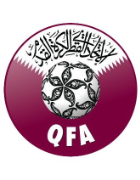
Football is one of the world’s oldest and most popular sports. Traces of early forms of the game date back to ancient civilizations such as China, where a game called "Cuju" was played during the Han Dynasty, involving kicking a ball into a net without using hands. Similar versions were also found in Greek and Roman societies. However, the modern version of football began to take shape in 19th-century England.
In 1863, the Football Association (FA) was established in England, marking a key turning point in the sport’s development. It introduced the first unified set of rules and officially distinguished football from rugby, which at the time shared similar elements. The sport quickly gained popularity in schools and universities and spread far beyond the UK to Europe, Latin America, and eventually the world. The first official international match was played between England and Scotland in 1872, and in 1904, the Fédération Internationale de Football Association (FIFA) was founded. The first FIFA World Cup followed in 1930, hosted by Uruguay.
Football was first introduced as a demonstration sport at the Olympic Games in 1900 and 1904, becoming the first team sport to be included in the Olympic programme. It was officially added to the Olympic schedule at London 1908 and has been featured at every edition since, except for Los Angeles 1932. Women’s football made its Olympic debut at Atlanta 1996. While professional players are allowed in the men’s tournament, participation is limited to those under 23 years of age, with three over-age players permitted per team. In contrast, there are no age restrictions in the women’s competition.
Team Qatar qualified for the Olympic Games in Los Angeles 1984 and again in Barcelona 1992, reaching the quarter-finals on both occasions. One of the country’s most remarkable football achievements came at the Doha 2006 Asian Games, where the national team captured the gold medal in front of a home crowd.
In 2022, Qatar made history once again by becoming the first country in the Middle East to host the FIFA World Cup — the second largest sporting event in the world — further solidifying its place on the global sporting stage.
Qatar Football Association
The Qatar Football Association (QFA) was established in 1960 and became a member of FIFA in 1970 and the Asian Football Confederation (AFC) in 1972. Since then, the QFA has played a central role in the development of football across the country, overseeing national competitions—most notably the Qatar Stars League and the Amir Cup—and managing all national teams across age categories. The QFA was also instrumental in the establishment of Aspire Academy, which has become a global model in talent development.
Qatar’s national team made history by winning the AFC Asian Cup twice consecutively: first in 2019 in the UAE, and again in 2023 on home soil, becoming the first team to retain the title in over two decades. Qatar also participated in prestigious international tournaments, including the 2019 Copa América and the 2021 CONCACAF Gold Cup. In 2022, the QFA hosted the FIFA World Cup Qatar 2022—the first ever held in the Middle East—setting new standards in tournament delivery and fan experience. The national team continues its progress, including qualification for the Paris 2024 Olympic Games (U-23). Key players include Almoez Ali, Akram Afif, Hassan Al-Haydos, and Tarek Salman, alongside a new generation of emerging talent. The QFA remains committed to advancing Qatari football through innovation, international partnerships, and long-term strategic planning.

H.E. Jassim bin Rashid Al-Buenain
President
Mr. Mansoor Al Ansari
Secretary GeneralContact

